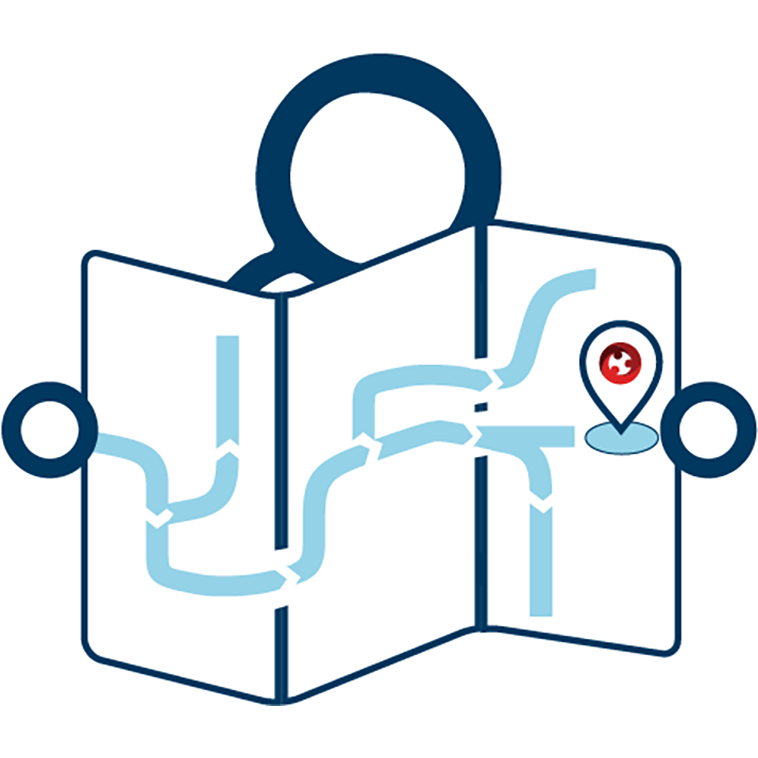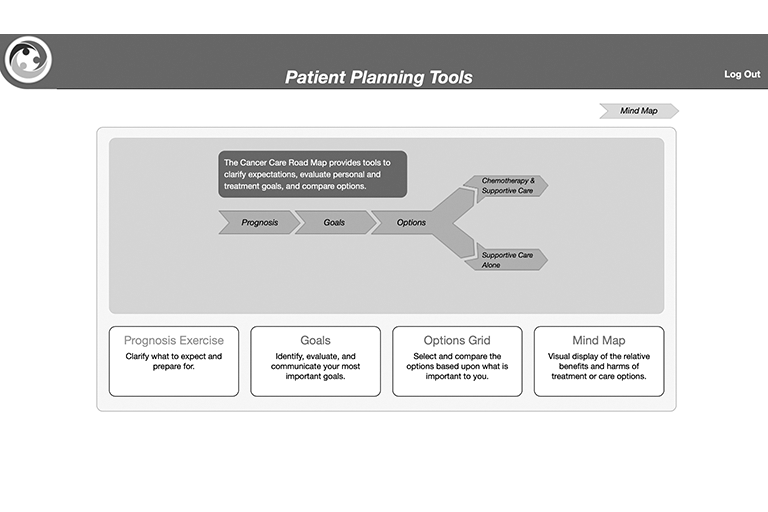Understanding complex information
The best treatment plan for you is based on high-quality evidence and your values and goals. However, people like you, caregivers, and oncologists are often overwhelmed with complex and difficult-to-communicate information.
The resources within the Cancer Care Road Map are specifically designed to fill the gaps that disrupt effective communication.
The Cancer Care Road Maps improve the understanding of complex information by:
- Organizing and sharing the information when it is important.
- Illustrating why it is important at that moment.
- Showing how using the information may impact what happens next.
Thinking about the information and making choices
Thinking about what's going on, what one wants, and then making decisions is challenging but essential. The Cancer Care Road Maps clearly identify decision points, choices, and the probable outcomes for each decision. By using a map, you can anticipate when a decision is necessary, appreciate the options and associated benefits and harms, and prepare for the decision well in advance.
Part of your preparation includes thinking about your values and goals and how they affect the way you think about benefits, harms, and options, The Cancer Care Road Maps also include “maps” of the decision making or deliberation process to help you organize your thinking.
Planning and coordinating your care
Once you’ve made your best choice, the Cancer Care Road Maps help implement your treatment or care plan safely and efficiently. The maps provide a visual summary to help all involved understand what should happen when. Your care team has a single view of what is important; the maps can be available to all your care team to minimize misunderstandings.








